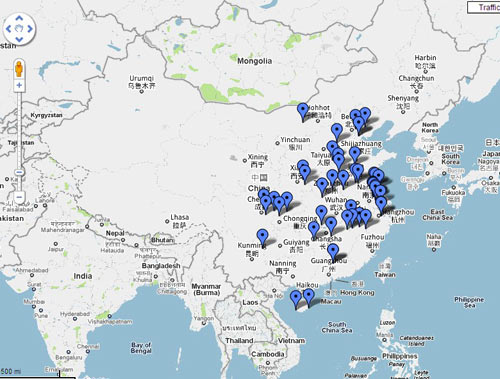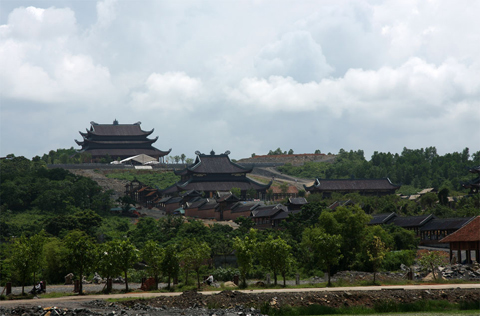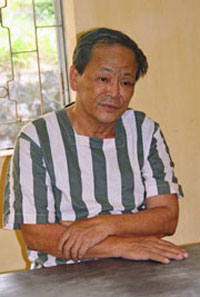China.org.cn
Shanghai Daily, February 25, 2013
China has more than 247 "cancer villages" throughout the mainland, according to a map that is being widely circulated on the Internet.
 |
A map of "cancer village" in China's mainland. [File photo]
|
The map caught the public's attention after the Ministry of Environmental Protection admitted earlier this month the existence of such villages and said pollution was to blame for high cancer rates among their residents.
The map was said to have been drawn up by a Chinese university student after research into data and media reports.
Although such villages are found in around 27 regions, many of them are located in central Henan and eastern Jiangsu provinces.
The number of such villages is a sharp increase compared to another widely circulated map published by social activist Deng Fei several years ago.
Deng identified just over 100 "cancer villages."
In Yangqiao Village of Yancheng City in Jiangsu, more than 20 villagers have been reported as dying of cancer, mainly from lung and esophageal cancers, from 2001 to 2004.
The pollution in the air was so bad, it was reported, that villagers had to cover their mouths and noses with wet towels when sleeping.
In Dongjin Village in the same city, nearly 100 villagers were said to have died of cancer from 2001 to 2006 as the result of pollution caused by a chemical company. The firm offered 70 yuan (US$11) to each villager as "subsidy" after it was sued by victims, China Business Journal reported.
In a village in Henan, a total of 79 villagers died of cancer in four years after a growing number of paper manufacturing factories discharged industrial waste into river, turning it as black as ink.
The environmental ministry has published a plan to prevent and control risks brought by chemicals to the environment.
The ministry said China was still producing and using toxic chemicals which were banned in some developed countries because of their threat to human health and the environment.
"Various chemicals have been detected in some rivers, lakes and inshore waters, as well as in animals and human bodies in recent years," the ministry said.
"Toxic chemicals have caused several environment emergencies linking to water and air pollution. Drinking water crises hit many regions while 'cancer villages' and other severe cases of health and social problems emerged in some other regions," the ministry said.
According to the plan, sources polluting underground water will be under tight supervision by environmental watchdogs by 2020.
Shallow underground water in China has been severely polluted and the situation is deteriorating rapidly, with water quality data in 2011 showing that 55 percent of underground supplies in 200 cities was of bad or extremely bad quality, according to the Ministry of Land and Resources.
A review of underground water carried out by the ministry from 2000 to 2002 showed that nearly 60 percent of shallow underground water was undrinkable, the Beijing News reported yesterday.
Some reports in the Chinese media said water pollution was so severe in some regions that it caused cancer in villagers and even led to cows and sheep which drank it to become sterile.
In the latest pollution scandal, chemical companies in east China's Weifang City were accused of using high-pressure injection wells to discharge waste sewage more than 1,000 meters underground for years, seriously polluting underground water and posing a cancer threat.
The government of the city is offering 100,000 yuan (US$16,000) to anyone who blows the whistle on companies illegally discharging waste underground. So far, no companies have been caught for polluting the environment.




































